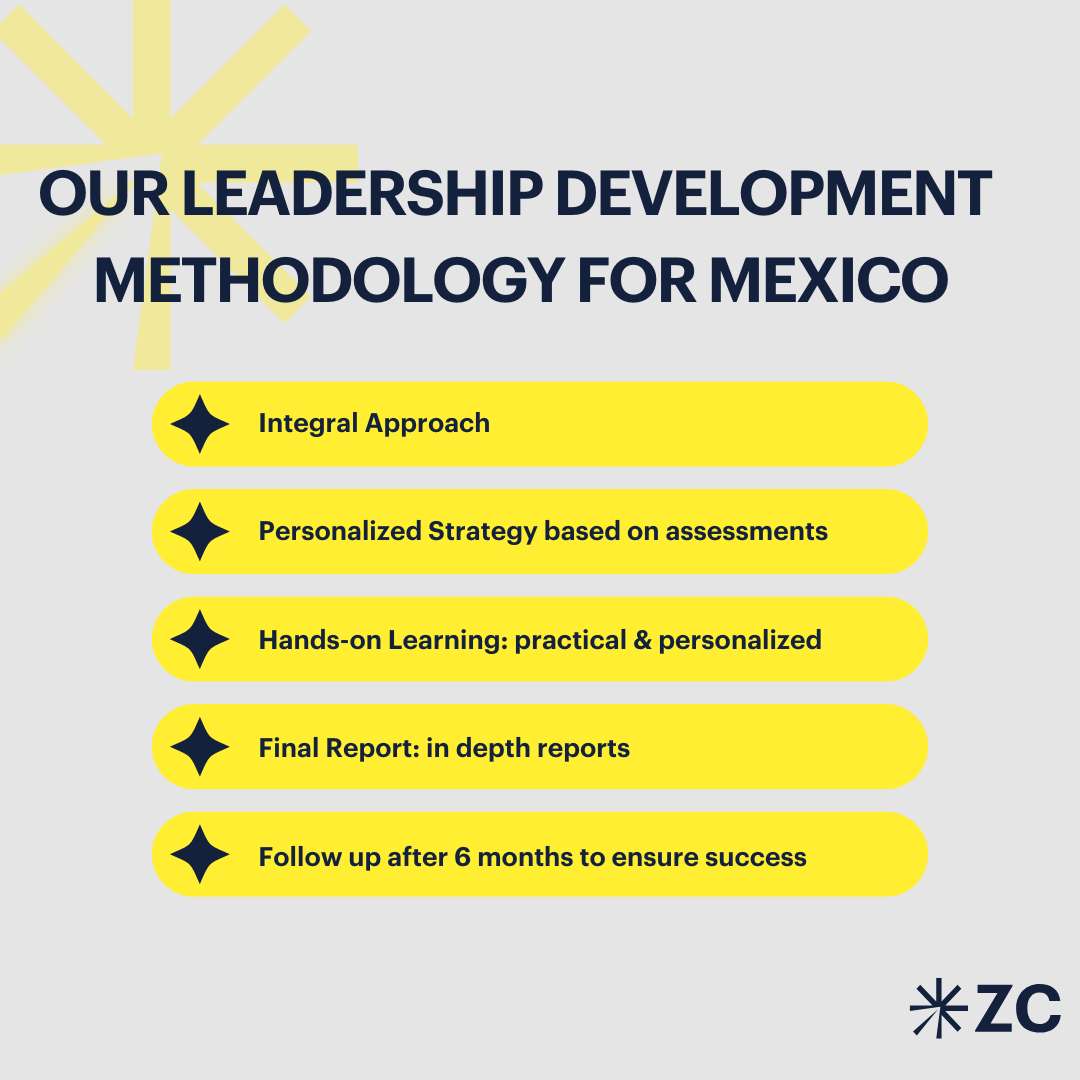Mexico, the second-largest economy in Latin America, is undergoing a period of economic transformation and uncertainty. While the country showed resilience in the aftermath of the COVID-19 pandemic, the latest data from Banco de México projects a modest GDP growth of around 2.4% for 2024, amid inflation concerns, political transitions, and fluctuating global trade dynamics.
Additionally, Mexico’s proximity and trade dependency on the U.S. economy through the USMCA (United States-Mexico-Canada Agreement) brings both opportunities and vulnerabilities.
In the Automotive and Energy Manufacturing Industries there other factors that region them such as low productivity, lack of skilled labor, ineffective leadership, etc. However, modernization seems to be possible. The most recent Economic Survey from the OECD underlines the necessity for enahancing human capital and increasing innovation.
Executive Development and Assessment: Critical for Mexico’s Business Environment
Executive Development and Assessment services are fundamental in helping organizations respond to market and skill challenges.
One of the greatest challenges is dealing with succession and management continuity, particularly in family businesses which still prevail in the country. Studies show that 70% of Mexican companies are family-owned, yet only 15% have formal succession plans in place.
Executive assessment provides a structured framework to identify internal leadership potential and ensure seamless transitions.
In addition, the ongoing digital transformation of Mexico requires leaders who are not only strategic but also innovative and technologically proficient.
LinkedIn’s Workforce Insights on he country highlights an alarming lack of skilled professionals in the country, particularly in prominent managerial positions.
This skill deficiency may be mitigated with the implementation of executive training centered upon agility, emotional intelligence, and change management.
Key Benefits of Executive Development for Mexican Businesses
- Organizations investing in robust executive assessment and development strategies unlock multiple advantages:
- Improved Talent Retention: Leaders aligned with the company’s values and vision are more likely to stay and contribute long-term.
- Data-Driven Succession Planning: Tools such as 360-degree feedback, psychometric testing, and leadership simulations offer objective insights into potential successors.
- Enhanced Innovation Capabilities: Executive development ensures leaders are equipped to lead digital initiatives and foster innovation.
- Cultural and Regulatory Alignment: Particularly for multinationals and companies involved in cross-border operations, assessing leaders’ ability to navigate Mexico’s regulatory and cultural landscape is crucial.
Additionally, with increased emphasis on ESG (Environmental, Social, and Governance) standards, boards and investors are seeking leaders capable of driving sustainable strategies.
Executive development ensures that leaders are well-prepared to integrate ESG priorities into their business models.

Strategic Leadership Investment in Mexico’s Growth Story
Executive Development and Assessment is one of the smartest investments businesses can make in Mexico today.
Amid shifting economic conditions and digital disruption, companies that prioritize leadership excellence will stand out from the competition. Strong, future-ready leaders are the key to unlocking Mexico’s potential and securing long-term success.









